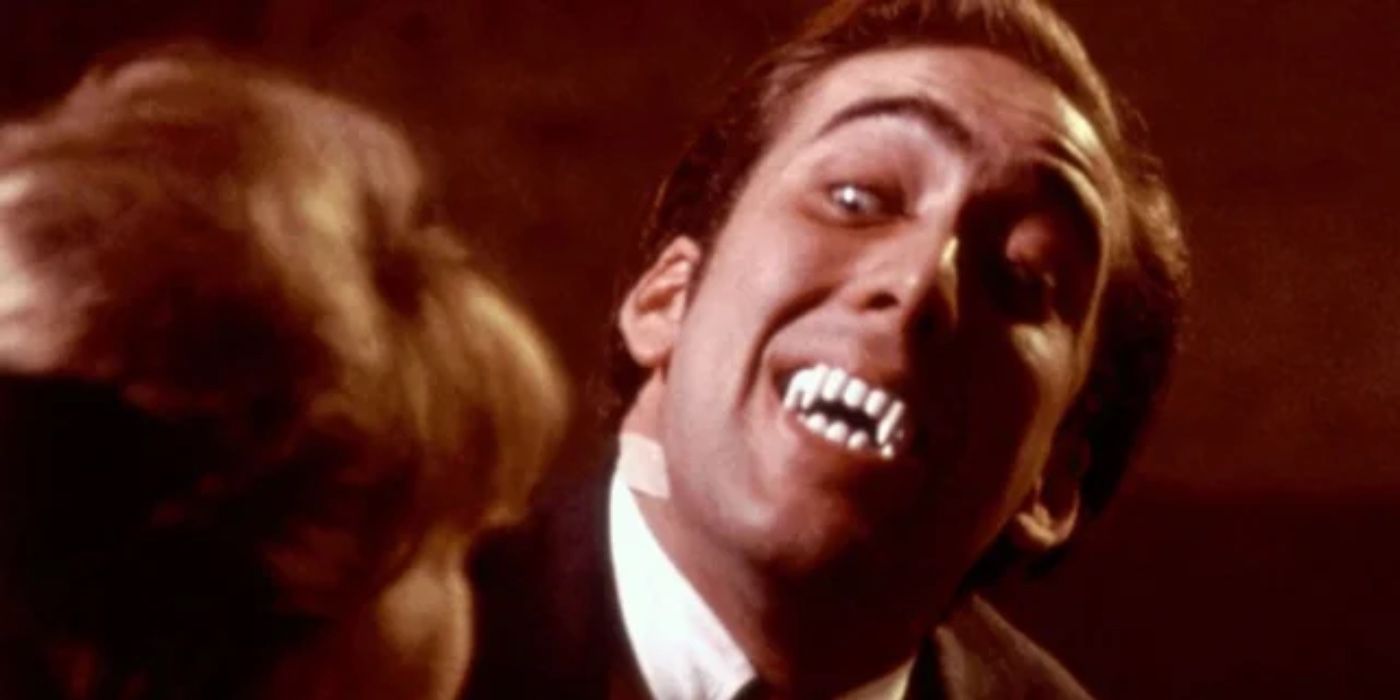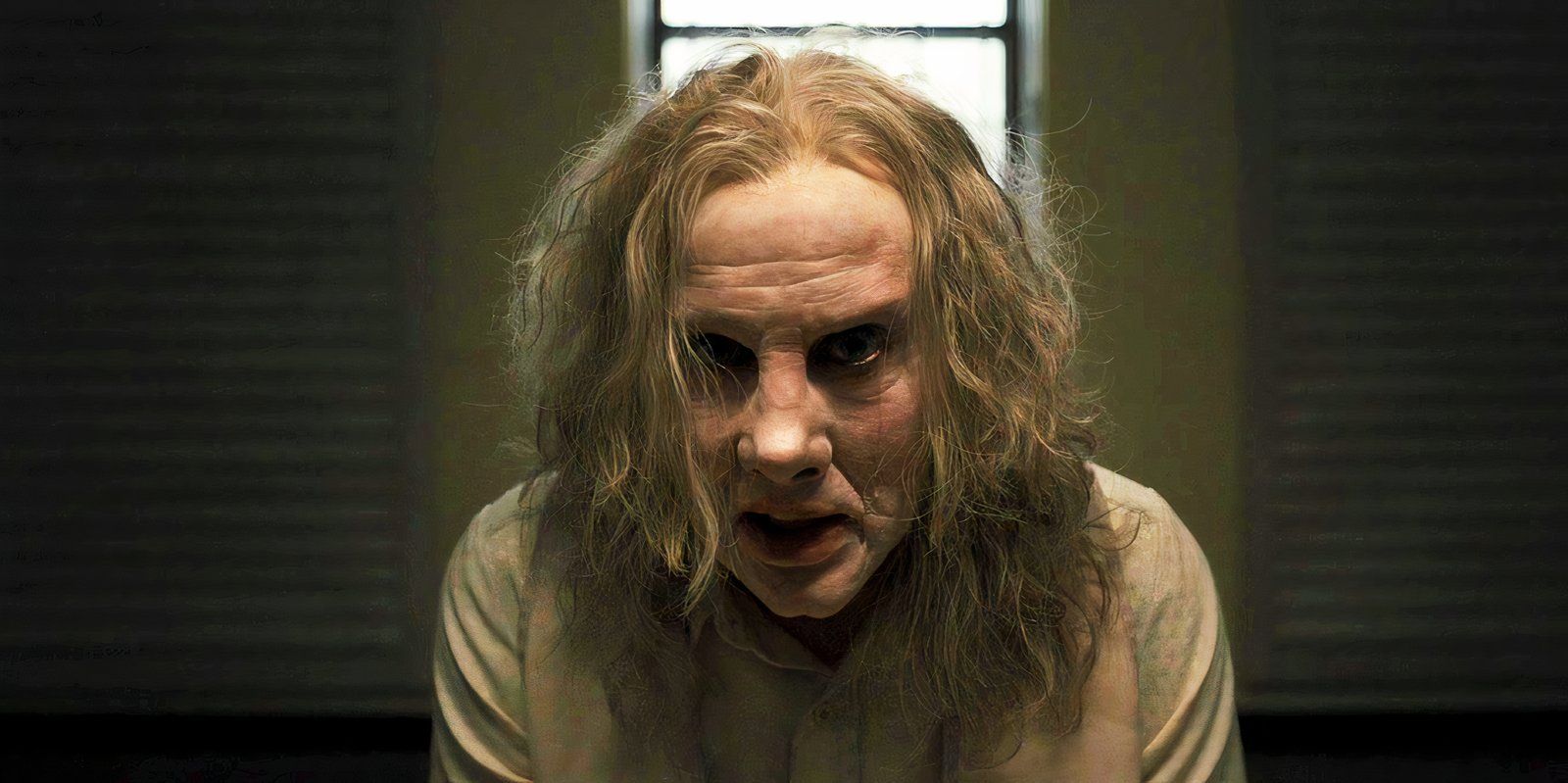While many struggle to make sense of Nicolas Cage’s wild career, one early performance is the key to unlocking the secret of the enigmatic figure. As an actor known for his over-the-top, unhinged performances in some of the most unusual Hollywood movies of all time, Cage stands out among his contemporaries as truly unique.
Everyone will have a different answer for what their favorite Cage movie is, but looking back on his legacy, it’s clear that Vampire’s Kiss from 1989 was a defining moment for the up-and-coming star. This was the film that marked Cage fully embracing his wildest instincts and tapping into an expressionist style of acting that went totally against the grain.
As a cult classic that’s inspired countless internet memes, Vampire’s Kiss was much more than simply bizarre, as it revealed Cage’s willingness to alienate audiences and critics alike in the pursuit of his craft. Walking the fine line between horror, satire, and performance art, to understand Cage, we must understand his approach to this odd black comedy.
Nicolas Cage Named Vampire’s Kiss As His Favorite Movie That He’s Made
This Cult Classic Marked A Turning Point For Cage
In a 2018 interview with GQ, Nicolas Cage pointed out Vampire’s Kiss as his favorite of his, and it’s clear why he would hold a special kind of reverence for it. Although Cage had important roles before this, such as in the Coen brothers’ classic Raising Arizona and the rom-com Moonstruck, Vampire’s Kiss represented an artistic breakthrough.
In his performance as Peter Loew, the unstable literary agent who becomes convinced he’s turning into a vampire after a one-night stand, Cage took his reputation for eccentricity to grand new heights. Rather than simply portray Peter as mad, Cage instead experiments with vocal inflections and physicality in a way rarely seen in mainstream cinema.
It’s clear that Cage has no interest in realism and that, for him, Vampire’s Kiss is more about seeing how far he can push this character’s psychological descent into the realm of the absurd. This was an important turning point for Cage, and the unhinged nature of Peter Loew has informed his acting ever since.
Cage’s Outrageous Acting Style Has More With German Expressionism Than Traditional Hollywood
There’s An Artistry To Cage’s Unusual Performance Choices
The deranged way that Nicolas Cage chose to play Peter in Vampire’s Kiss might have initially seemed like a wild one-off character choice. However, when taking the actor’s subsequent career into account, it’s clear that he was taking influence from a wealth of different sources, including German Expressionism, silent film performances, and commedia dell’arte.
There’s an over-the-top theatricality that characterized the silent film era and the early days of sound that’s been mostly lost in modern Hollywood. Naturalistic performances such as Marlon Brando’s iconic turn in On the Waterfront influenced actors to embrace realism in the second half of the 20th century, yet Cage’s work rejects this more laid-back, less theatrical style.
Instead, Cage’s career represents a road not taken by Hollywood stars, where over-the-top performances that were ruled by big emotions were the norm. Cage’s performances in movies like Vampire’s Kiss might seem totally unhinged to viewers unfamiliar with his unique style, but he’s just playing his role with an entirely different mindset than the average Hollywood leading man.
From Vampire’s Kiss onward, Cage deliberately rejected Hollywood norms in favor of a bold, expressionistic acting style.
While Cage is often seen as simply eccentric, his wild reputation masks his deeper artistic instincts. From Vampire’s Kiss onward, Cage deliberately rejected Hollywood norms in favor of a bold, expressionistic acting style that was unique to him. It’s not an easy path to follow, but even though Cage has been mocked for his performances, he’s stayed true to them.
Cage’s love of the films The Cabinet of Dr. Caligari and Paddington 2 is played for laughs in The Unbearable Weight of Mᴀssive Talent, but it actually points to the strange duality of his appeal. As an actor equally informed by silent German horror as he is by mainstream Hollywood, there are many dimensions to Cage.
Vampire’s Kiss Was Just The Beginning Of Nicolas Cage’s Wildman Persona
Cage Continued To Confound Expectations To This Day
Although Cage’s approach to performance is far from typical, it proved effective when he landed the role of Sailor Ripley in David Lynch’s Wild at Heart the following year. Considering Lynch’s equally unconventional style, the two made perfect collaborators, and Cage’s unique acting style fit right into the film’s surreal, dreamlike world.
Cage even won an Oscar for Leaving Las Vegas, yet his performance was no less eccentric than usual. However, playing a self-destructive alcoholic allowed his wild side to feel grounded, as Ben Sanderson’s constant intoxication gave realistic context for Cage’s heightened choices. This was the perfect example of Cage’s wildman persona let loose in a film that could justify it.
While Cage’s career has gone through ups and downs, he’s never allowed his pᴀssion for performance to dim, and he’s stayed true to his craft even as others make baseless accusations that he can’t act. With varied roles like The Wicker Man, Mandy, and Pig, even when the films aren’t great, Cage still gives it his all.
To Understand Cage, We Must Accept He’s Not Trying To Be Naturalistic
Nicolas Cage Has Carved His Own Path In Hollywood
When properly analyzing Cage’s career, it’s clear that he’s not interested in fitting neatly into categories like being a good or bad actor, and he’s more concerned with imbuing every role with pᴀssion and emotion. Cage isn’t fretting over the pre-established conformity of mainstream cinema, as he’s carved out a legacy by being different.
Though he’s often dismissed as over-the-top, Cage’s performances are rooted in thoughtful artistic philosophy. Far from acting crazy just for the sake of it, his bold choices reflect a deep commitment to his craft that began with Vampire’s Kiss and has been evolving ever since. There’s always been a method to Nicolas Cage’s madness; we just needed time to catch up.
Source: GQ







